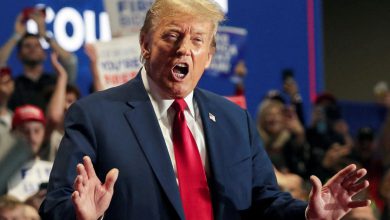
Meeting between leaders of China, Vietnam signals close ties between neighbouring states despite occasional tensions.
China’s President Xi Jinping has held talks with Vietnam’s President To Lam in Beijing on his first state visit since becoming his country’s top leader, according to Chinese official media Xinhua.
The meeting between Xi and Lam on Monday signals the close ties between the two communist-run neighbours, which have well-developed economic and trade relations despite occasional strains over their competing claims in the South China Sea.
The visit comes just a month after Lam took over in Hanoi following the death of Vietnam’s longtime Communist Party leader Nguyen Phu Trong.
China, displaying exuberance over Lam choosing China for his first official trip, said last week it “fully reflects the great importance he attaches to the development of ties between both parties and countries”.
China’s top diplomat, Wang Yi, greeted Lam and his wife, Ngo Phuong Ly, when they arrived at the airport in Beijing.
Photos posted by Chinese and Vietnamese online publications later showed the couple being welcomed by Xi and his wife, Peng Liyuan.
Lam arrived in China’s southern Guangzhou province on Sunday for a three-day visit that will also include meetings with Premier Li Qiang and other top Chinese officials.
While in Guangzhou, he visited some of the locations in China where former Vietnamese President Ho Chi Minh conducted revolutionary activities.
Last December, when Xi visited Vietnam, China and Vietnam signed more than a dozen deals.
The agreements, specifics of which were not announced, covered strengthening railway cooperation and development, investments in various fields and establishing communication to handle unexpected incidents in the South China Sea.
In a lengthy joint declaration, both countries said they would work on cross-border railway connectivity, naming three rail projects, including one connecting mountainous Lao Cai in Vietnam’s northwest to the port city Haiphong.
It also mentioned working on other projects under China’s flagship infrastructure programme, the Belt and Road Initiative, and emphasised investment cooperation in agriculture, infrastructure, energy, digital economy, green development and other fields.
China and Vietnam forged diplomatic ties in 1950 and established a comprehensive strategic partnership of cooperation in 2008. That agreement was deepened five years later to include more international and regional issues of shared concern.
Despite the closeness, Vietnam and China have clashed politically over disputed islands and territories in the South China Sea.
In 2014, their dispute turned deadly as riots erupted between Vietnamese and Chinese workers in China, leaving more than 20 people dead.
Recently, Vietnam has also sought to improve its relations with the United States.
Source link



